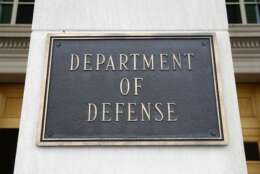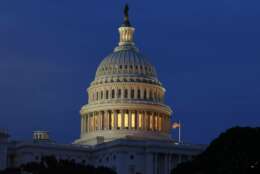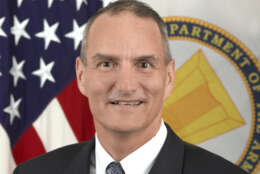Defense
-
The armed services are focusing on training, tempo and maintenance to reduce the number of mishaps that lead to injuries and fatalities.
March 24, 2021 -
Sexual assaults are still increasing in the military, despite hundreds of recommendations over the years.
March 24, 2021 -
In today's Federal Newscast, a new report from the American Enterprise Institute says the Pentagon has been punting its responsibilities in the past.
March 24, 2021 -
Military partners struggle with a 25% unemployment rate — leading to financial issues for families and to frustrated partners who are trying to thrive in their career.
March 24, 2021 -
The Army saw a slight increase in its percentage of personally-procured PCS moves in 2020, even as pandemic-related travel restrictions constricted the total number of soldiers moving from one duty station to another.
March 24, 2021 -
Army leaders are kicking out the requirement that soldiers do at least one leg tuck as part of the new physical fitness test.
March 22, 2021 -
Both parties in the House have agreed to participate in the new earmarks process that proponents say include some safeguards to prevent abuses.
March 22, 2021 -
In today's Federal Newscast, the military’s program for collecting blood and plasma donations says it’s facing an emergency supply problem.
March 22, 2021 -
In a new campaign plan, the sea services say teaming traditional systems with unmanned ones will let them "rewrite the narrative" of maritime warfare.
March 22, 2021 -
The Defense Department’s criminal investigations always had the goal of evidence data, but the traditional methods of investigation are now merging new forms of data analysis. The Naval Criminal Investigation Service (NCIS) sees several changes ahead as a result.
March 18, 2021 -
Airmen and Guardians are not permitted from being members of groups, but certain actions can jeopardize their careers.
March 18, 2021 -
In today's Federal Newscast, the Senate has passed legislation that would let VA vaccinate anyone who’s ever served in the military, plus their spouses.
March 18, 2021 -
Greg Garcia recently retired after 38 years in government where spent the last two-plus years as the deputy CIO of the Army.
March 18, 2021 -
The Army's senior leadership has yet to make a final decision on how to reform the service's Criminal Investigation Command, but an internal review identified a need for 300 new civilian special agents.
March 18, 2021 -
The upgrades will help the Army with its Project Convergence program, which mixes AI decision-making with soldier lethality.
March 17, 2021
















